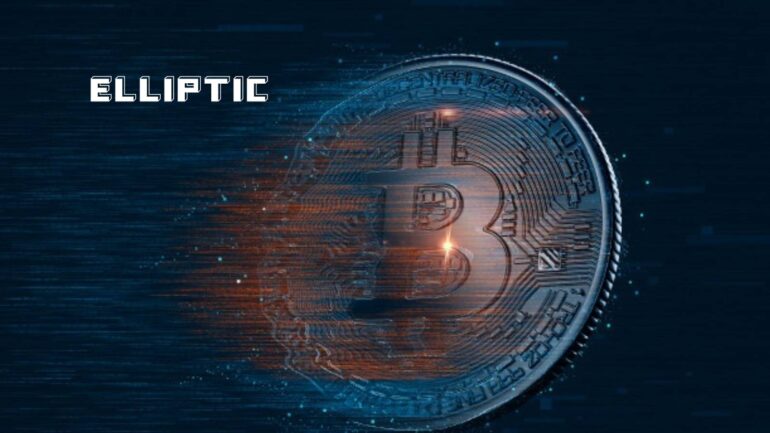TL;DR:
- Crypto analytics firm Elliptic has integrated artificial intelligence (AI) into its toolkit for tracking blockchain transactions and risk detection.
- The company is leveraging OpenAI’s ChatGPT chatbot to organize data more efficiently, while maintaining strict usage limitations.
- Elliptic aims to complement its human-based data collection and organization processes with AI, allowing for improved accuracy and scalability.
- The adoption of ChatGPT enables Elliptic to enhance its datasets and insights, without generating or modifying data, searching for intelligence, or monitoring transactions.
- Elliptic remains focused on data security and is unconcerned about AI “hallucinations” or the generation of false information.
- AI chatbots, like ChatGPT, have faced scrutiny for providing falsified information, but efforts are being made to address these concerns.
- Elliptic’s integration of AI technology allows for a unique perspective on risk assessment, enhancing the company’s offerings to customers in the market.
Main AI News:
In a bid to bolster its capabilities in tracking blockchain transactions and mitigating risks, crypto analytics firm Elliptic has announced the integration of artificial intelligence (AI) into its toolkit. Leveraging the power of OpenAI’s ChatGPT chatbot, Elliptic aims to streamline data organization processes, enabling faster and more efficient analysis. Despite the adoption of AI, Elliptic has implemented strict usage limitations and refrains from employing ChatGPT plug-ins, prioritizing the security of its intelligence and data.
With a solid reputation as a trusted entity among prominent banks, regulators, financial institutions, governments, and law enforcers worldwide, Elliptic understands the paramount importance of maintaining data security. A spokesperson for the company reiterated this commitment, stating, “That’s why we don’t use ChatGPT to create or modify data, search for intelligence, or monitor transactions.”
Founded in 2013, Elliptic specializes in providing blockchain analytics research to institutions and law enforcement agencies, aiding them in tracking cybercriminals and ensuring regulatory compliance in the realm of cryptocurrency. Just last month, Elliptic released a report exposing several Chinese businesses involved in the illicit sale of chemicals used to manufacture fentanyl, a potent synthetic opioid, and their acceptance of cryptocurrencies like Bitcoin as payment. This report prompted U.S. Senator Elizabeth Warren to reiterate her call for stricter regulations governing cryptocurrencies.
By incorporating ChatGPT into its workflow, Elliptic aims to augment its human-based data collection and organization processes, enabling its team to double down on accuracy and scalability. While human analysts play a pivotal role, the integration of large language models (LLMs) allows for enhanced data organization. “Our employees leverage ChatGPT to enhance our datasets and insights,” stated the Elliptic spokesperson. “We follow and adhere to an AI usage policy and have a robust model validation framework.”
One aspect that differentiates Elliptic’s approach is its focus on utilizing ChatGPT solely as a complementary tool for data enhancement, rather than a generator of information. Consequently, the company remains unconcerned about potential AI “hallucinations” or the generation of false information. The notion of AI hallucinations refers to instances where AI systems produce unexpected or untrue results unsupported by real-world data.
The rise of AI chatbots, exemplified by ChatGPT, has attracted increased scrutiny due to their ability to convincingly generate fabricated information about individuals, places, and events. In response, OpenAI has intensified its efforts to address these concerns, employing mathematical techniques to mitigate the occurrence of such hallucinations during model training. OpenAI recognizes this as a crucial step in developing aligned artificial general intelligence (AGI).
Jackson Hull, the CTO of Elliptic, emphasized the value of integrating ChatGPT, stating, “Integrating ChatGPT allows us to scale up our intelligence, giving our customers a unique perspective on risk that cannot be obtained elsewhere.” By embracing AI technology within its operations, Elliptic solidifies its commitment to delivering unparalleled risk assessment solutions to its clientele.
Conclusion:
Elliptic’s integration of AI technology, specifically the integration of ChatGPT, into its crypto tracking and risk detection processes signifies a significant step forward in the market. By leveraging AI to streamline data organization, enhance datasets, and improve insights, Elliptic can provide its clients with unparalleled risk assessment solutions.
This move showcases Elliptic’s commitment to innovation and staying at the forefront of the rapidly evolving crypto landscape. The integration of AI technology holds promising implications for the market as a whole, highlighting the growing importance of advanced analytics in the cryptocurrency sector.

